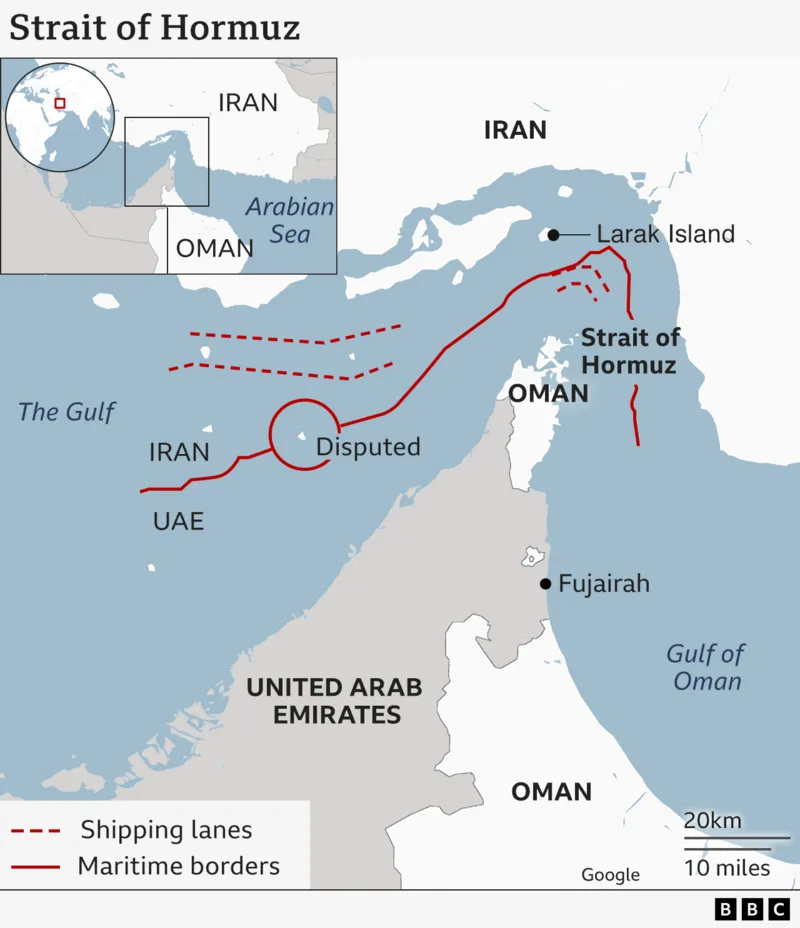Quick Summary:
- Oil prices spiked after Israel’s strikes on Iran but have since eased, though they remain $10 higher than a month ago.
- Higher energy costs could drive up global prices for petrol, food, and other goods, but only if the elevated prices persist.
- Experts say disruptions to shipping in the Strait of Hormuz could push oil prices higher, though such interruptions remain unlikely.
- The overall economic impact depends on how the conflict develops, but some analysts believe the price shock may be temporary.
Israel’s recent strikes on Iran, followed by Iran’s retaliation, initially sent shockwaves through global financial markets. Oil prices spiked in response, but after a weekend of missile and drone exchanges, the price of crude has since eased.
However, oil prices remain $10 higher than they were a month ago, renewing fears that energy costs could rise globally, impacting the prices of petrol, food, and even holidays.
This scenario is similar to what happened after Russia invaded Ukraine in 2022, which led to widespread inflation.
Oil Price Movements Following the Strikes
The market reacted swiftly to the Israel-Iran tensions. Brent Crude, the international oil benchmark, surged to over $78 per barrel on Friday. Although it has since settled around $74.50, prices are still significantly higher than they were just a month prior.
Oil prices often fluctuate in response to geopolitical crises and global economic shifts. While the current price is well below the peaks seen in 2022—when oil nearly reached $130 per barrel following Russia’s invasion of Ukraine—it still raises concerns.

Will Petrol and Consumer Prices Go Up?
When crude oil prices rise, many people feel the impact at the petrol pump first. However, energy costs ripple through the economy, affecting everything from farming and transportation to food processing and packaging.
Higher energy prices can drive up the cost of food in multiple ways:
- Increased fuel costs for farm machinery.
- More expensive transportation of goods.
- Higher costs in food processing and packaging.
That said, such price hikes typically occur only if elevated energy prices persist over time.
Even for petrol and diesel, the direct impact of crude price increases is somewhat limited. According to David Oxley of Capital Economics, “A $10 rise in the oil price would add about 7p to the price at the pump.”
However, Oxley notes that this isn’t just an oil issue—higher gas prices also play a significant role, as seen after Russia’s invasion of Ukraine. In the UK, rising gas prices could slowly affect household energy bills, though regulatory price caps may offer some protection.
Could Oil Prices Climb Even Higher?
Richard Bronze, head of geopolitics at Energy Aspects, describes the current situation as “very significant and concerning,” though he believes it may not have the same widespread impact as the Ukraine conflict.
Key factors to watch include:
- How long the Israel-Iran conflict lasts.
- Whether other Middle Eastern countries become involved.
- The potential for U.S. intervention to ease tensions.
A major concern is the Strait of Hormuz, a critical shipping route for about 20% of the world’s oil. Disruptions there could significantly drive up oil prices.
“It’s a narrow choke point—a significant weak spot for global oil markets,” Bronze explains. While an interruption remains unlikely, it’s now more possible than it was just days ago, and this risk is already influencing oil prices.
If shipping continues without major disruptions, oil prices may not stay elevated. Unlike the post-COVID surge in energy demand seen in 2022, today’s global economy is under pressure, and oil-producing nations like Saudi Arabia and Brazil have the capacity to increase supply if needed.
Global Economic Implications
The extent to which energy prices rise—and their broader impact—depends heavily on how the Israel-Iran conflict unfolds.
Mohammed El-Erian, chief economic adviser at Allianz, warns, “It’s another shock to the stability of the US-led global economic order at a time when there were already a lot of questions.”
Capital Economics suggests that if oil prices surge past $100 per barrel, it could add around 1% to inflation in developed economies, complicating efforts by central banks to reduce interest rates.
However, David Oxley remains cautiously optimistic: “Instability in the Middle East is nothing new—we’ve seen numerous bouts of it. In a week’s time, it might all have blown over.”



















Leave a Reply